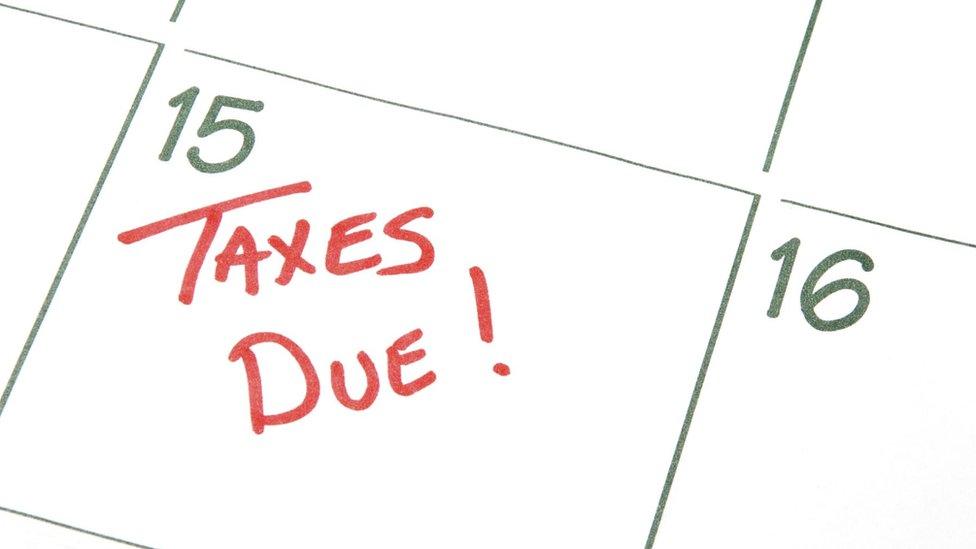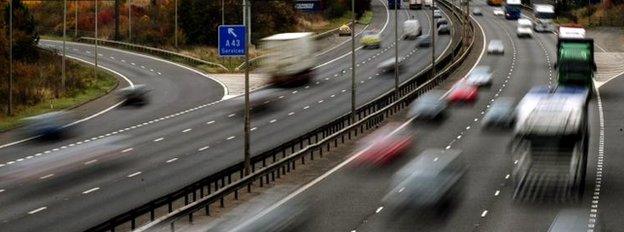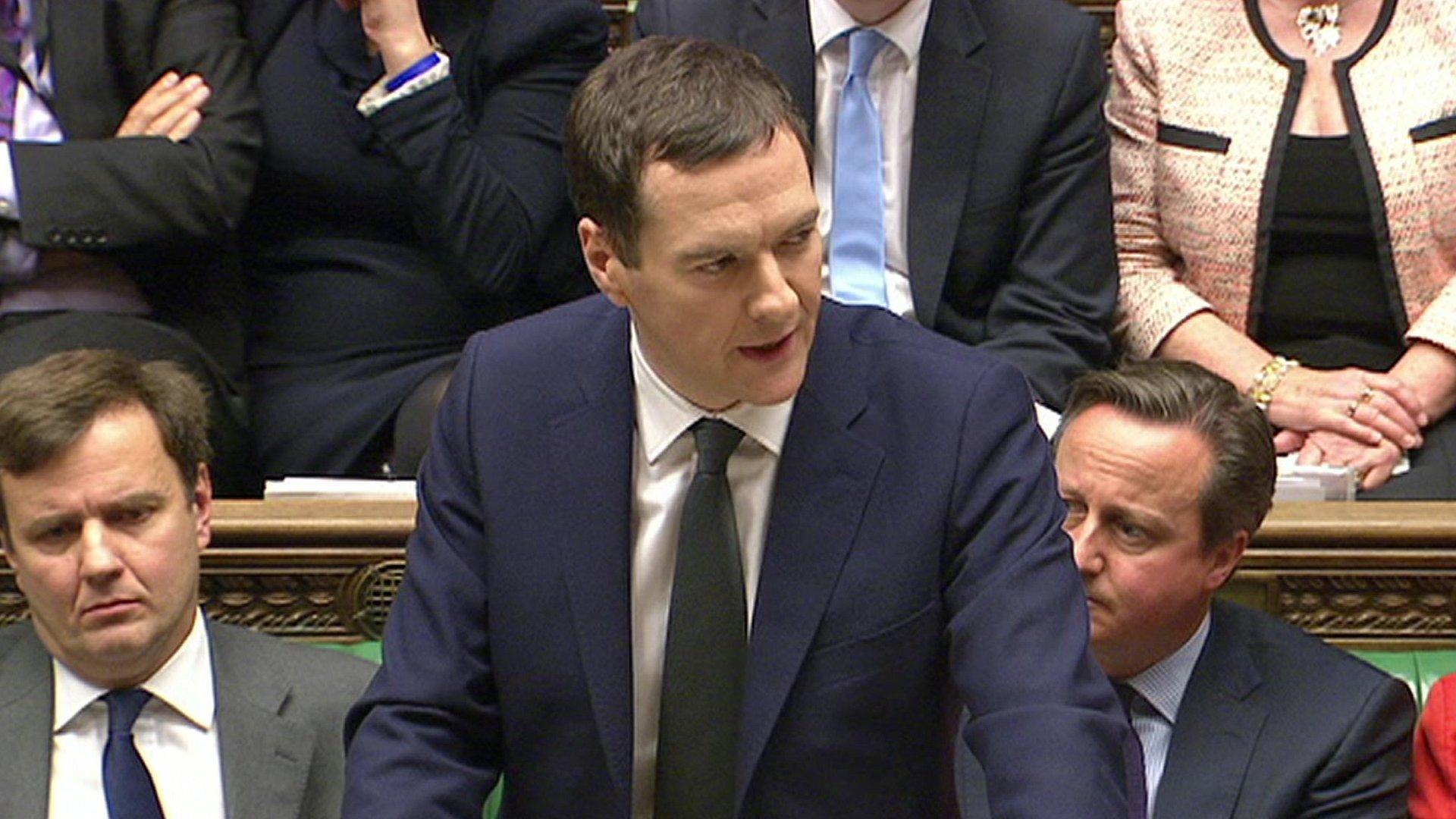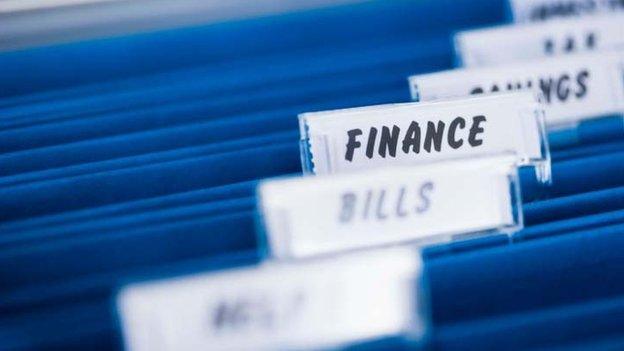Autumn Statement 2015: Tax changes in the pipeline
- Published

Our tax affairs will be organised digitally in the future, Chancellor George Osborne says, but it does not mean they are getting any simpler.
A series of tax changes were hidden behind the headlines of his Autumn Statement.
Some affect the self-employed and small companies, others impact low-income individuals, the retired and the wealthy. Many will now go out for discussion, but the outlines are clear.

Your own tax account
HM Revenue and Customs (HMRC) are to give most taxpayers a digital tax account. You will be able to see your tax position online and access the account using free apps and software.
But you will also have to keep the account up to date. The self-employed and landlords must input income and expenses every quarter, instead of waiting until after the end of the tax year to tell HMRC about profits. We do not yet know if this will also mean tax needs to be paid sooner.
Employees and pensioners will not be part of this new digital world, unless you have another source of income which pays you over £10,000 a year.

Automatic tax bills
HMRC will be able to send you a tax bill on the basis of the information they already hold, replacing self-assessment with HMRC assessment.
This new approach will be used where HMRC believe you have "simple" tax affairs.
If you receive an automatic tax bill, you should check it straight away. If you do not challenge the bill within a limited period, it may become final and HMRC will then collect the tax.

Sports testimonial matches

Sports personalities sometimes have testimonial matches. Current rules sometimes allow them to keep the entire proceeds without paying tax.
These rules will change from April 2017, with any proceeds above £50,000 being taxed.

Salary sacrifice
If you swap your salary for something else, such as childcare or a higher pension, this is called salary sacrifice. Usually the swap means that tax and/or National Insurance contributions are reduced or removed altogether.
In the Autumn Statement, the government warned that it "remains concerned" about salary sacrifice and "is considering what action, if any, is necessary" - in effect, a warning that things might change.

Time limit to pay Capital Gains Tax

If your house or flat has always been your personal private residence (PPR), there is no tax to pay when you sell it. If you have a second property, you may have to pay capital gains tax (CGT).
At the moment, you work out the CGT after the end of the tax year, as part of your tax return. This means you have around 10 months to do the maths.
These time scales are to be tightened, so that the CGT will be due 30 days after the property is sold.
Working out CGT can be complicated, especially if you lived in the property for a while, carried out renovations, or let it to tenants. Under the new regime, you will need to get cracking on the calculations as soon as the ink is dry on the sale contract.

A new pensions tax system
The current pensions tax regime works like this: you get tax relief when you pay into a pension, but pay tax on most of the pension when you receive it.
The government is considering scrapping this system entirely, replacing it with a system similar to an Individual Savings Account (Isa).
The money you pay into your Pension-Isa will come out of your taxed income. The government may then add a bonus to your savings, and when you take your pension it will be tax free.
The government will announce its decision in next year's Budget. If the change goes ahead it will be the biggest shake-up of pensions in our lifetimes.

Pension annuities
Those aged 55 and over are now allowed to take money out of their pension savings on a fully flexible basis.
However, many retired people have already used their pension savings to buy an annuity. An annuity gives you a regular monthly pension, usually for the rest of your life.
The chancellor has now announced that it will be possible to sell your annuity in the market place. So if you have an annuity of £500 a month, you will be able to sell this and get a lump sum instead.
In other words, you can swap your future income for an immediate cash sum.
You will of course need to know that you are being paid a fair price, and should check that you have enough other income to support you in old age.

Travel and subsistence

The government has confirmed that it is going ahead with changes to prevent contractors from obtaining tax relief on the costs of their travel to work, including the cost of meals or accommodation related to that travel.
This change was announced earlier this year, but at the time the government was still considering whether to include everyone who worked via a personal service company (PSC).
We now know that the crackdown will not affect PSC contractors, unless the contract is caught by anti-avoidance rules known as IR35. This means that if the contractor would have been self-employed had he worked as an individual rather than using a PSC, he can continue to obtain tax relief for his travel and subsistence.
However, this is not the end of the story. Changes to IR35 are also likely, following a review earlier this year by the Office of Tax Simplification. Any reform is likely to tighten the current rules, and make them easier for HMRC to police and enforce.

Winding up for tax reasons
When companies are wound up, the money inside the company can sometimes be paid out as capital, so that the more generous capital gains tax regime applies.
This can be a way of avoiding income tax, but this planning is now likely to be blocked.

The opinions expressed are those of the author and are not held by the BBC unless specifically stated. The material is for general information only and does not constitute investment, tax, legal or other form of advice. You should not rely on this information to make (or refrain from making) any decisions. Links to external sites are for information only and do not constitute endorsement. Always obtain independent, professional advice for your own particular situation.
- Published25 November 2015

- Published26 November 2015
